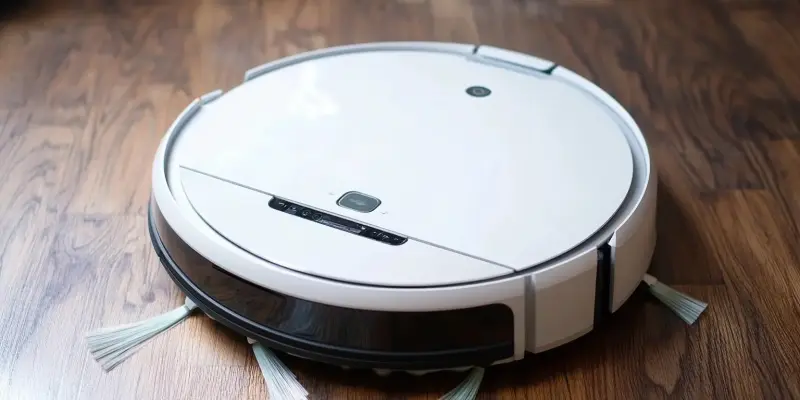Ecovacs robot vacuums have emerged as a popular choice for keeping homes clean with minimal effort, but recent findings suggest that these devices may pose significant security risks. Presented at the DEF CON 32 hacking conference, researchers Dennis Giese and Braelynn Luedtke exposed critical flaws in popular Deebot models and other IoT devices manufactured by Ecovacs, raising significant concerns about privacy risks in smart homes.
Security Flaws
The vulnerabilities in these robotic vacuums revolve primarily around their Bluetooth connectivity and PIN authentication systems. Hackers can potentially connect to these devices remotely from distances of up to 450 feet. By bypassing weak PIN protections, they can gain full control of the vacuums. This alarming ability to access the robots underscores the need for robust security mechanisms in IoT products.
Surveillance and Harassment
Once hackers infiltrate the vacuums, they can activate onboard cameras and microphones without the owner’s knowledge. This turns these seemingly benign household helpers into covert tools for spying. Disturbingly, hackers can disable camera warning sounds by tampering with device sound files, stream live video and audio feeds via cloud services, and even broadcast offensive messages through the device’s speakers. This capability opens the door to invasive surveillance and harassment.
Real-World Incidents
Several real-world incidents have highlighted the dangers posed by these vulnerabilities. In Minnesota, a lawyer’s Deebot X2 vacuum shockingly broadcast racial slurs, while in Los Angeles, a hacked vacuum harassed a pet dog. A reporter in Australia demonstrated the ease of such hacks by infiltrating a vacuum from a nearby park. These cases illustrate the tangible and distressing impact of security loopholes in these devices.
Potential for Larger Scale Attacks
The identified vulnerabilities suggest the potential for cybercriminals to launch larger-scale attacks, much like the infamous Mirai botnet attack in 2016. Network worms targeting robot vacuums could spread rapidly, infecting multiple devices and creating widespread chaos. The sophistication of modern robot vacuums, equipped with advanced features like cameras, microphones, and network connectivity, provides an attractive target for cybercriminals.
Device Models Affected
Multiple Ecovacs models are affected by these vulnerabilities, including the Deebot 900 Series, Deebot X1/X2, Deebot N8/T8, Deebot N9/T9, Goat G1 lawnmower robots, and Spybot Airbot models. This wide range of affected products suggests a systemic issue that needs urgent attention from the manufacturer to ensure consumer safety and privacy.
Ecovacs’ Response
Despite being informed of these vulnerabilities, Ecovacs’ response has been criticized as inadequate. Researchers have reported that many of the security issues remain unresolved despite some firmware updates. The company initially attributed the problems to “credential stuffing” attacks rather than acknowledging systemic flaws. Although Ecovacs has since promised security upgrades for the affected models, comprehensive fixes have yet to be implemented.
Mitigating Risks
To mitigate these risks, experts recommend that users disable internet connectivity on their robot vacuums when not in use and apply firmware updates as soon as they become available. Additionally, the importance of robust security measures for IoT devices cannot be overstated. Manufacturers must prioritize encryption, secure authentication protocols, and regular vulnerability assessments to protect user privacy.
Conclusion
Ecovacs robot vacuums have gained popularity for their ability to clean homes efficiently with little human intervention. However, recent findings have uncovered potential security issues associated with these devices. At the DEF CON 32 hacking conference, researchers Dennis Giese and Braelynn Luedtke revealed serious vulnerabilities in several Deebot models and other Ecovacs-manufactured Internet of Things (IoT) devices. These security flaws raise significant privacy concerns, highlighting the potential risks these smart home devices pose to users. Particularly, the vulnerabilities could allow unauthorized access, putting personal data and home security at risk. Smart home devices, while convenient, often connect to the internet, increasing their exposure to hackers. This exposure underlines the need for consumers to carefully consider the security measures of IoT products they bring into their homes. The revelations at DEF CON serve as a reminder about the trade-offs between convenience and security in the age of smart technology.

